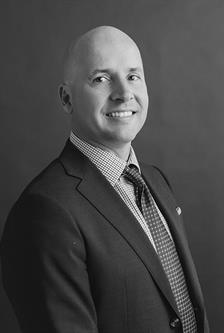
After nearly 14 years, the Florida state agency responsible for nursing home oversight has lifted the ban on the construction of new nursing homes in the state, according to news sources. Last month, the Agency for Health Care Administration approved the construction of 22 new nursing home facilities and the expansion of 11 existing facilities, creating an additional 2,600 new beds within the state.
The moratorium on adding new nursing home beds first came into effect in 2001. It was in response to the state’s growing Medicaid spending. It also was aimed at encouraging the growth of community-based, long-term care facilities. The bill that repealed the moratorium passed last year, thus allowing the Agency for Health Care Administration to move on the new approvals.
While some are excited about the new nursing homes because they believe the expansions will help address Florida’s growing elderly population, certain elder-care advocates are concerned that the new facilities will overstretch the state regulatory bodies that inspect nursing homes, thus opening the doors to more potential elder abuse and neglect.
These elder-care advocates, such as Brian Lee, the executive director of Families for Better Care, which is a nursing home watchdog organization, note that “The families have to be vigilant. Despite the newness of the buildings, families have to do their homework, understand who owns the nursing home and find out how many staffers will be there.”
Mr. Lee’s advice is spot on. While nursing homes are suppose to provide high quality care to some of the most vulnerable members of our community, it is important to remember that nursing homes are a business. And sometimes, unfortunately, corporate greed trumps patient care.
The lucrativeness of Florida’s nursing home industry is exemplified by the fact that more than 100 applications were submitted to fulfill the state’s projected 3,100-bed need. The new beds are approved through the State of Florida’s Certificate of Need program, which requires service providers (like hospitals, hospices, and nursing homes) to obtain state approval before they can offer new services or expand upon existing services. Experts expect that, due to the financial value of the approvals, the applicants that were not successful in obtaining approvals will appeal the state’s decisions.
Factors That Can Lead To Nursing Home Abuse
According to the National Center on Elder Abuse, there is no one single predictor of when or where nursing home abuse will occur. However, they point out that abuse research has uncovered a range of risk factors that, when put together, can put an elderly person or senior in greater jeopardy for abuse.
Based on research, the following categories of risk have been identified as major contributors to nursing homes injures and abuse:
- Facility risk factors– poor staffing and a lack of a caring corporate culture often creates an environment where elder abuse can happen. Poorly trained aides and other staff are less likely to be able to give quality care, especially to high-need residents, such as those with dementia or other severely incapacitated individuals.
- Resident risk factors– some nursing home or long-term care facility residents can be more vulnerable to abuse than others. For example, residents who act out or have behaviors associated with dementia, or those who are highly dependent on care, are at a greater risk for abuse or neglect.
- Relationship risk factors- residents who live far from family or who do not have a lot of contact with outside family members or other individuals can be more at risk for abuse. The risk of abuse or neglect also can increase if staff is too over-worked to have time to develop personal relationships with residents or if a resident has had past conflicts with the nursing home staff.
Tallahassee Legal Help With Personal Injuries Caused To Seniors And The Elderly
The exact extent of the elder abuse problem in the United States is unknown, primarily because so many cases go unreported. However, experts estimate that approximately 10 percent of all nursing home residents may experience abuse or neglect at one time or another.
If you believe that a loved one is being mistreated at a nursing home, long-term care facility, or other medical institution, it is important to make a report immediately. In Florida, the Florida Abuse Hotline can be reached at (800) 96-ABUSE. The number is toll-free and available 24/7.
The Tallahassee and Southern Georgia personal injury attorneys at Fasig & Brooks are available to help nursing home victims and their family members understand their legal rights and help you obtain the financial compensation they deserve. Call us today at (850) 222-3232 or use our online contact form to arrange for a free consultation to talk about your situation.






